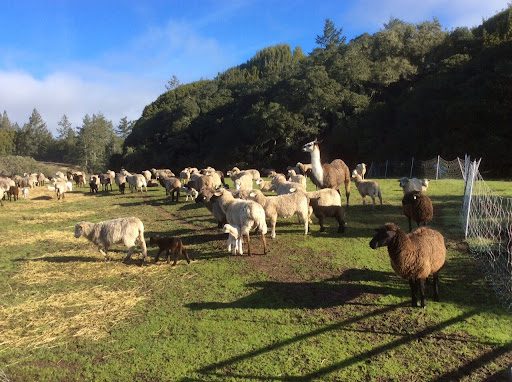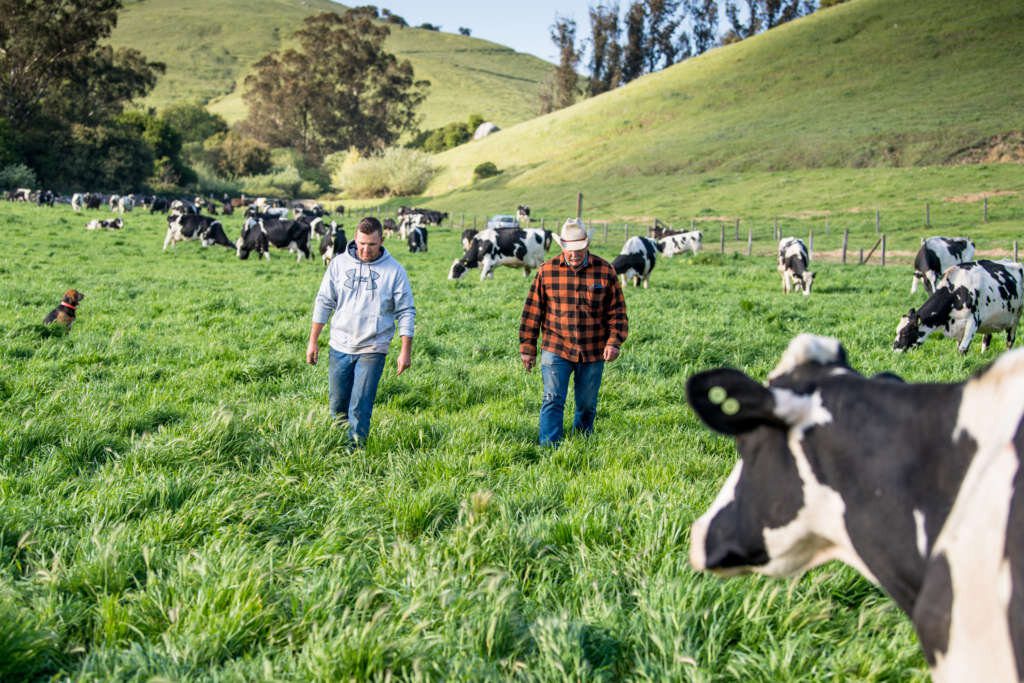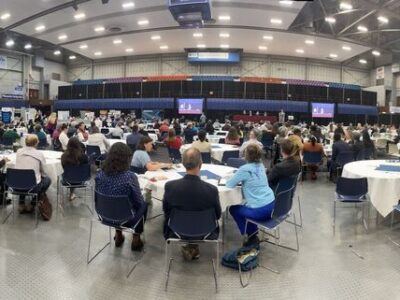Farmer Hazel Flett, born in the UK, has spent the past forty-one years tending sheep at Bodega Pastures, an intentional community in West Sonoma County, California. Along with the other community members, she raises sheep organically using practices that benefit the animals as well as the environment.
Bodega Pastures is certified “climate beneficial” thanks to a carbon farm plan created in partnership with the Resource Conservation District. Over the next few months, the community hopes to apply compost, improve their grazing program and plant hedgerows around the vegetable garden.
California, like much of the Western part of the United States, has been suffering from droughts and wildfires this summer. “Whatever we can do to preserve moisture will be a very good thing,” Flett said, referring to the relationship between drought and fire. “It also just feels good to know we are climate beneficial.”
The upcoming projects at Bodega Pastures will be made possible through a grant from Zero Foodprint (ZFP), a non-profit organization based in Boulder, Colorado that funds regenerative agricultural projects. ZFP sees the current food system as both a significant cause of and a major solution to climate change. Growing, harvesting, processing, and storing our food contributes about half of all greenhouse gas emissions around the world. According to ZFP’s website, food and land use offer 15 of the top 25 climate solutions so solving issues in our food system is a practical way to combat global warming.

Founded by famed restaurateurs Anthony Myint and Karen Leibowitz (the husband-and-wife team behind Mission Chinese Food), ZFP raises capital through their roster of participating restaurants. Each restaurant invites diners to donate 1 percent of their bill, which then gets turned over to farmers in the form of grants to implement sustainable farming practices. Most of the funded projects focus on creating healthy soil through regenerative practices–and healthy soil not only benefits the food supply but can also sequester massive amounts of carbon.
“Our ultimate goal is to create a renewable food economy,” said Myint.
To date, ZFP has around fifty partner restaurants mostly in Colorado and California with a few in Kentucky, Oregon, New York, and Texas, as well as around the globe. Participating eateries include Bouquet, a restaurant in Kentucky, Whistling Boar, a catering company in Longmont, CO and Lunchette, a vegetarian spot in Petaluma, CA. And ZFP’s list is rapidly growing with more and more new establishments making the pledge to participate.
Based in Boulder, one of ZFP’s biggest initiatives is “Restore Colorado,” a collaboration with Boulder County and the U.S. Department of Agriculture. Restore Colorado uses the same crowdsourcing fundraising model to create grant money for local farmers committed to regenerative practices. Marcus McCauley, of the McCauley Family Farm in Longmont, was one of the first to receive a grant through Restore Colorado. He’ll use a portion of the money to add compost to his fields, giving the soil vital nutrients and fertilizer, and the rest of it will go towards planting trees to protect the land from wind damage.
“I love nature, and I love the study of life, and I love the study of systems,” McCauley says. “We’re building an ecology that’s appropriate to this place, but we’re also trying to feed people.”
In addition to funds raised via restaurants and their patrons, ZFP accepts donations from anyone via their website. And their mission seems to resonate. As co-founder Leibowitz writes, “The ZFP community is now funding six-carbon farming projects with an expected benefit of 1,245.77 metric tonnes of carbon dioxide (CO2e) drawn back out of the atmosphere. That’s about the same as the climate benefit of 20,599 tree seedlings grown for 10 years, or not burning 140,179 gallons of gasoline.”

ZFP was also the recipient of the James Beard Foundation’s Humanitarian Award, an annual distinction that recognizes organizations that “improved the lives of others and benefited society at large.”





